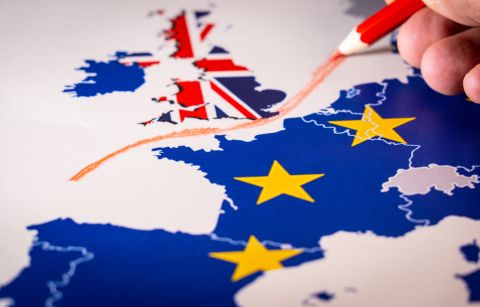
The Belgian system of devolved government could be useful in fending off populist and nationalist appeal
For those keeping an eye on Brexit, 29 March 2019 looms large on the horizon. From the specter of a ‘no-deal’ Brexit that Japanese Prime Minister Shinzo Abe claimed “the whole world” does not want following a meeting in London with his British counterpart Theresa May, to British opposition leader Jeremy Corbyn’s attempt to force general elections to resolve the matter, the urgency is palpable.
Are Britain’s neighbours on the continent ready for what will happen in a matter of weeks?
“In the worst case scenario we’re looking at deploying more luggage scanners, sniffer dogs, manual scanners, drones scanning coastlines, submarines to examine ships in the North Sea etc.,” explained Andy Detaille, Belgian Ambassador to Singapore. “There are different scenarios and we have drawn up contingency plans, but we don’t yet know what it will be. We hope for the lightest possible form of Brexit because [the UK leaving the EU] will have an impact on us.”
The UK are a major trading partner for Belgium, accounting for nine percent of all Belgian exports. In a March 2018 study by Deloitte, Belgium was identified as one of four European Union countries that will be most affected by the British leaving the EU. As the UK’s second closest continental European neighbour by proximity – France being the closest – the region closest to the British Isles will feel the brunt of Brexit: Flanders.
“The Flemish region will be impacted the most because the two things that are affected the most are the textile industry and F&B (food and beverages),” the Ambassador told Perspectives@SMU, referring to the region producing 80 percent of all Belgian exports to Britain. “Both these industries are concentrated in Flanders.
“The northern part of Belgium has been doing more trade with the UK than the rest of Europe for hundreds of years because only the English Channel separates them. There is an impact but we are preparing for it on all levels. The Flemish investment and trade office for instance has a person in London exclusively dealing with this, and there’s another team in Brussels that deals with it.”
Addressing Nationalism
Although Brexit is the most visible example of nationalism and populism in a globalised 21st century, nationalist and far-right parties have made significant gains across Europe in recent years. Italy is governed by a coalition of two populist parties, Hungary’s Prime Minister won a third term by running an anti-immigrant campaign, and Austria’s Freedom Party is now part of a coalition government after nearly winning the presidential election.
With a multilingual and multicultural population, is Belgium especially vulnerable to politicians seeking to exploit differences for votes? Ambassador Detaille: “You can look at it from both ways. You could say, ‘The population is very diverse and therefore the national identity is not that strong, and the country is also quite young.’
“On the other hand, Belgium is open to influences everywhere and we have one of the most open economies in the world. Brussels is the second most cosmopolitan city in the world after Washington, D.C. in terms of expats living in the city. That’s a remedy against populist politicians because people who are exposed to a lot of external influences early in their lives are used to the external world.”
He added: “[Belgium’s devolved government] is a strength. Our local communities are responsible for culture. Populists try to find a way to exploit feelings of local cultural pride, and the central state is often portrayed as blocking local culture. Populist politicians cannot exploit this route in Belgium for support because culture is devolved to the communities.”
Despite this structural bulwark, the Flemish conservative New Flemish Alliance’s (N-VA) party’s withdrawal from the four-party coalition government over immigration issues brings the topic into sharp focus. Terrorist attacks in recent years have stoked debates on the integration of immigrants and the worry of radicalisation by extremists.
“The solution is economic integration,” the Ambassador said emphatically. “Of course there is also a need for policing, and we have started to co-operate even more closely with France after we discovered the links between jihadists in Belgium and France.
“In Belgium and in many parts of Europe we have a problem with the employment rates of immigrant populations. We have to get those rates up. By getting people off the streets to work, they’re not hanging around and getting caught up in radical ideas.
“I think everyone should be able to express himself or herself culturally within the framework of the law. As long you respect certain tenets of the legal system in the jurisdiction in which you live, such as equality between men and women and the outlawing of female circumcision, you may do as you wish.”
Ambassador Andy Detaille was the speaker at the SMU Wee Kim Wee Centre talk, “Diplomacy under Fire: A Practitioner’s View – Lessons learnt from 12 years in MENA” held at SMU on 20 November 2018.
Follow us on Twitter (@sgsmuperspectiv) or like us on Facebook (https://www.facebook.com/PerspectivesAtSMU)
Last updated on 31 Jan 2019 .

